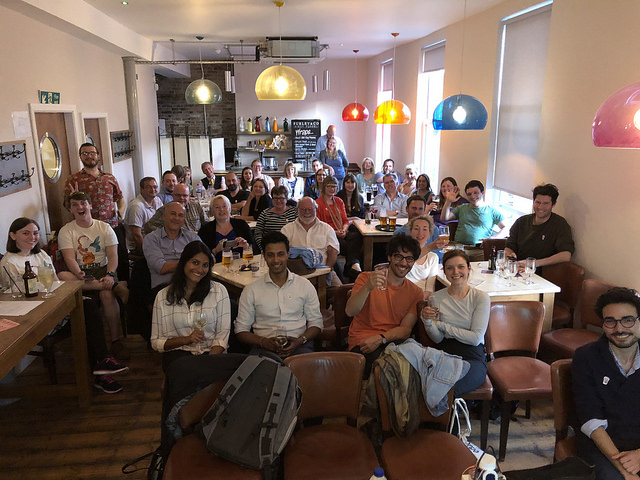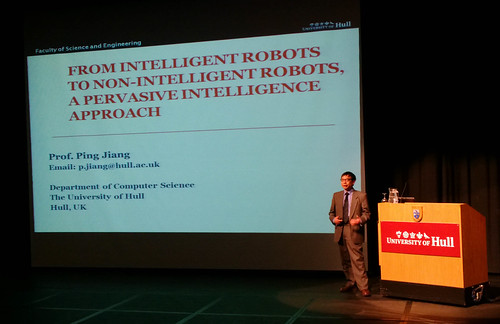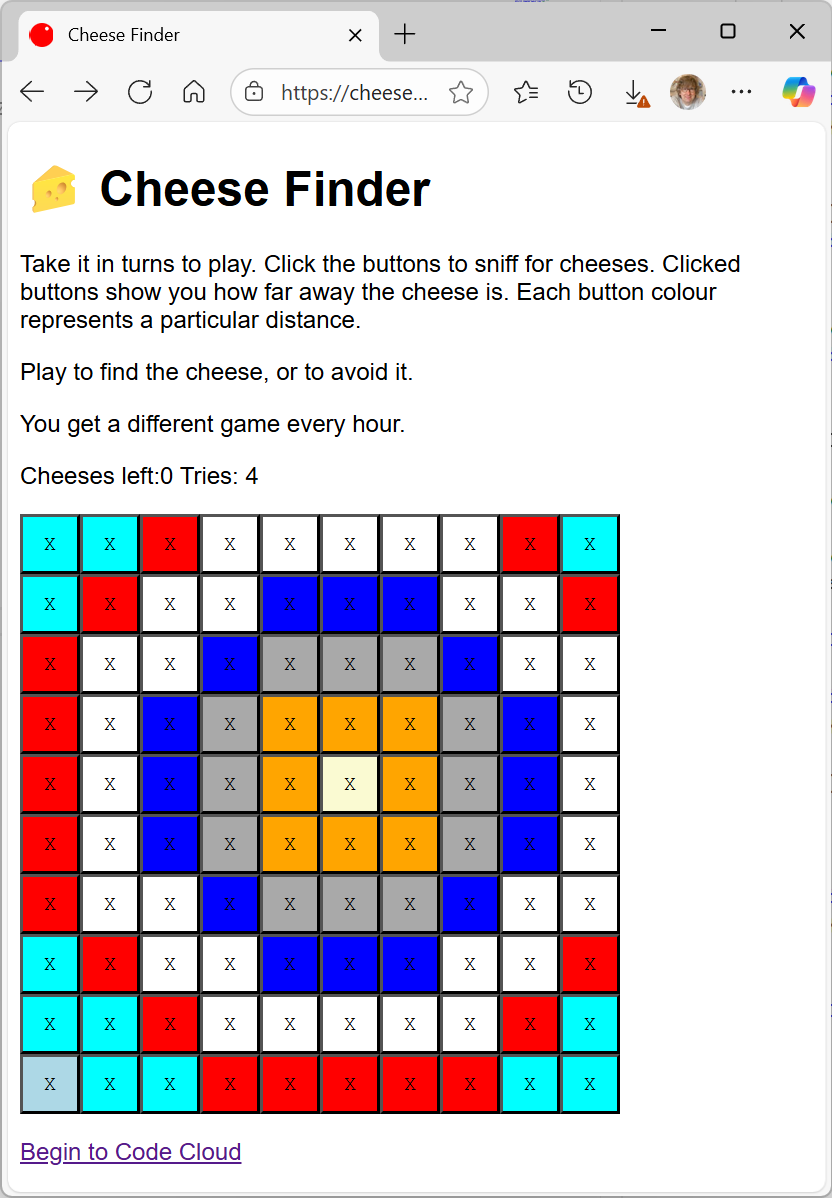So, tonight finds me in Furley and Co in the middle of Hull. I was there to give a talk about the Robots to be most afraid of. I was second on the bill, the first speaker was Dr Stephen Burwood, a lecturer on Philosophy, talking about Science and Human Nature. It was really interesting to hear a philosopher's take on science, and where it fits in. I learned a few new words including the word "aporia", which means an "impasse in reasoning".
The central tenet in Stephen's talk was that we seem to have used the scientific viewpoint to prove that we are really just a very clever kind of ape, but this leaves us with a really big thing about us that just don't seem to have a scientific explanation for; namely the things that we do that make us human.
Is there a scientific explanation of why we have things like good and bad, morals and stuff like that. If there is, then where is it? If there is no explanation, then what does that say about the scientific method? Deep stuff. Great exercise for the brain.
Then it was time for me to do my stuff. I talked about my worries about machine learning, that we are building tools that will be making decisions for us based on potentially shaky reasoning and dodgy stats, and that we are using software in situations where an ethical framework is urgently needed. It was interesting how Stephen's discussion on reasoning collided nicely with my observations on Machine Learning. More great questions, more great discussion.
Thanks to Phil for inviting me, and the audience for being awesome. I mentioned a few things in the talk that I'd link through to in the blog. Here they are.
One of the most accessible books on philosophy that I've ever read is Godel, Escher, Bach: An Eternal Golden Braid by Douglas Hofstadter. You can track down a copy on Amazon here.
The video of the Google software agent booking a haircut and using umms and ahhs in its speech is here.
The Universal Paperclips game is here.
You can find the Hull branch of the British Science Association here.












